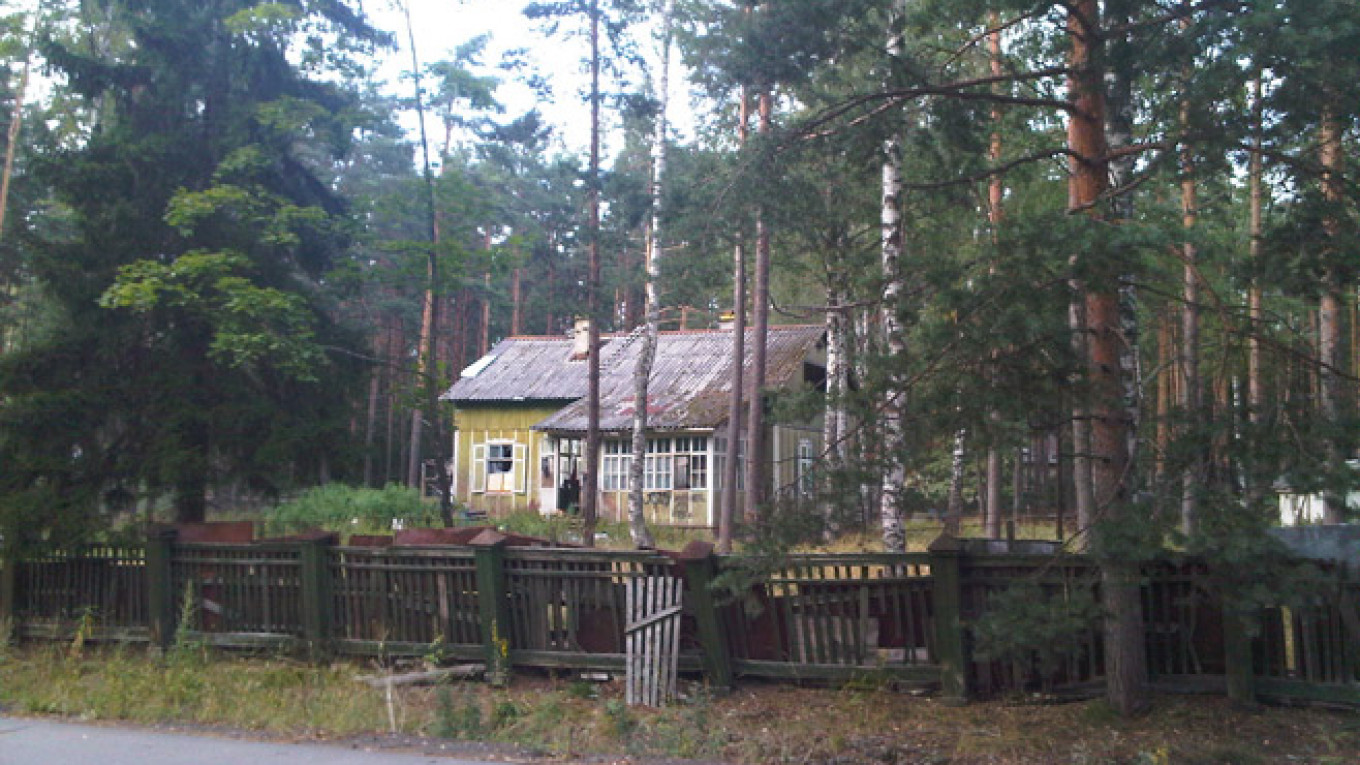Поко́й: rest, quiet, peace, calm, serenity
Yup, that's what we need this year — покой: some inner calm, peace and serenity to get us through what are sure to be 12 tough months. Is inflation going to peak in March or April? What else will the Duma ban, now that lace undies and most foreign organizations are out? And will Americans continue to be blamed for every crime on earth, from the dawn of time? It's enough to drive a person mad.
But instead, I'm going to channel покой. But first it might be nice to understand exactly what the word means and how to use it.
Покой is one of those versatile Russian words that can be either very easy or rather tough to translate. On the easy side, покой can mean a state of rest when you aren't working: Я работал с утра до вечера, не зная ни секунды покоя. (I worked from dawn to dusk without a moment's rest.)
This state of rest and relaxation might come at the end of a long career. Покой can mean retirement — that well-deserved rest bosses talk about as they hand over the gold watch — or gold-plated watch these days. Sometimes the pension is not welcome: Спортседан Lexus IS F ушёл на покой из-за низких продаж. (The sports sedan Lexus IS F sold so badly that it was put out to pasture.)
But покой can also refer to the peace that is long-lasting: Вечный покой ему и царство небесное! (May he have eternal rest in the kingdom of heaven!)
Покой can also refer to a place of refuge or retreat. In the old days — the really old days — people spoke about царский or женский покой (the tsar's or women's chamber) — rooms for sleeping or relaxing. Now that isn't used much outside palaces. Actually, modern palaces probably have бедрумы.
But покой as a chamber has remained in use in one place — the hospital. Приёмный покой is the room where you get admitted to a hospital after signing a bunch of papers and consigning your street-clothes to the coat-check. Шла по улице, упала, очнулась в приёмном покое. (I was walking down the street, fell and woke up in hospital admissions.)
Покой can be what you hope to find в покоях (chambers) — an atmosphere of serenity, usually without loud noises or hustle and bustle. Дом — это место, где вас ждёт покой и уют, где вы можете расслабиться и забыть обо всех делах. (A home is a place of serenity and comfort, where you can unwind and forget all your cares.)
And покой is finally what you hope to find in your head or heart, or wherever inner peace abides. Внутри вас — покой, а снаружи — бойкая жизнь. (Inside us is serenity, while outside life is bustling along.) Всё, что хочу — мир и покой. (All I want is peace and quiet.)
The problem is that people and events are constantly disturbing that peace. In Russian this is не давать покоя (literally, to not give peace), which can be translated variously. Воспоминания о прошлом не дают ему покоя. (Memories of the past haunt him.) Дети не дают мне ни минуты покоя. (The kids don't give me a moment's peace.) Он не даёт мне покоя. (He keeps bothering me.) Это — ситуация, не дающая покоя. (It's a nerve-wracking situation.) Сослуживец не даёт ей покоя. (Her co-worker keeps harassing her.)
All you can say is: Оставь меня в покое! (Leave me alone!)
Michele A. Berdy, a Moscow-based translator and interpreter, is author of "The Russian Word's Worth" (Glas), a collection of her columns.
A Message from The Moscow Times:
Dear readers,
We are facing unprecedented challenges. Russia's Prosecutor General's Office has designated The Moscow Times as an "undesirable" organization, criminalizing our work and putting our staff at risk of prosecution. This follows our earlier unjust labeling as a "foreign agent."
These actions are direct attempts to silence independent journalism in Russia. The authorities claim our work "discredits the decisions of the Russian leadership." We see things differently: we strive to provide accurate, unbiased reporting on Russia.
We, the journalists of The Moscow Times, refuse to be silenced. But to continue our work, we need your help.
Your support, no matter how small, makes a world of difference. If you can, please support us monthly starting from just $2. It's quick to set up, and every contribution makes a significant impact.
By supporting The Moscow Times, you're defending open, independent journalism in the face of repression. Thank you for standing with us.
Remind me later.








